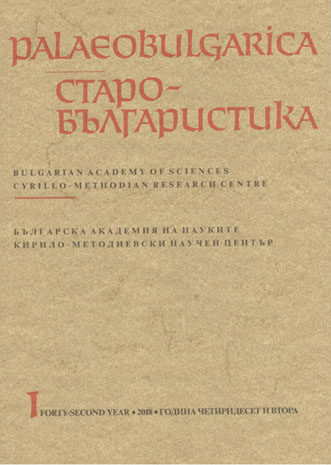Езикови еквиваленти на староеврейската дума шеол в избрани славянски преводи на Библията
Linguistic Equivalents of the Hebrew Term sheol in Slavic Translations of the Bible
Author(s): Agata Kawecka, Rafał ZarębskiSubject(s): Language studies
Published by: Кирило-Методиевски научен център при Българска академия на науките
Keywords: Hebrew word; Slavic translations of the Bible
Summary/Abstract: The authors study different equivalents of the Hebrew word sheol in selected old and new Slavic translations of the Bible. The equivalents of this lexeme have been excerpted from several Slavic translations of the Bible, which were selected on the basis of diverse criteria. The translations are presented chronologically and old translations are opposed to the new ones. They represent three groups of Slavic languages: West Slavic, East Slavic and South Slavic and are connected with the base of translations, i.e. the original text and/or Greek or Latin text. They can also be classified according to religious denomination and the strategy of the translation. The observation of those equivalents enables us to see not only their variety and mutual influence among translations but also the struggle of Slavic translators with a very difficult language matter. Many factors were important in that struggle: genetic and structural distances between Semitic and Slavic languages, different perceptions of reality in distant cultures, the discrepancy between biblical and Slavic realities and the influence of religious denomination. Another important factor was the state of biblical knowledge at the time – incomparably poorer in the case of the oldest Slavic translations in comparison to modern ones.
Journal: PALAEOBULGARICA / СТАРОБЪЛГАРИСТИКА
- Issue Year: 2018
- Issue No: 1
- Page Range: 117-135
- Page Count: 19
- Language: Bulgarian
- Content File-PDF

